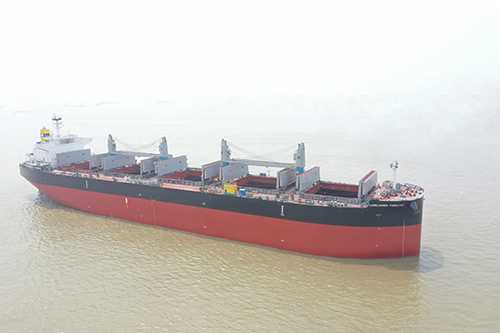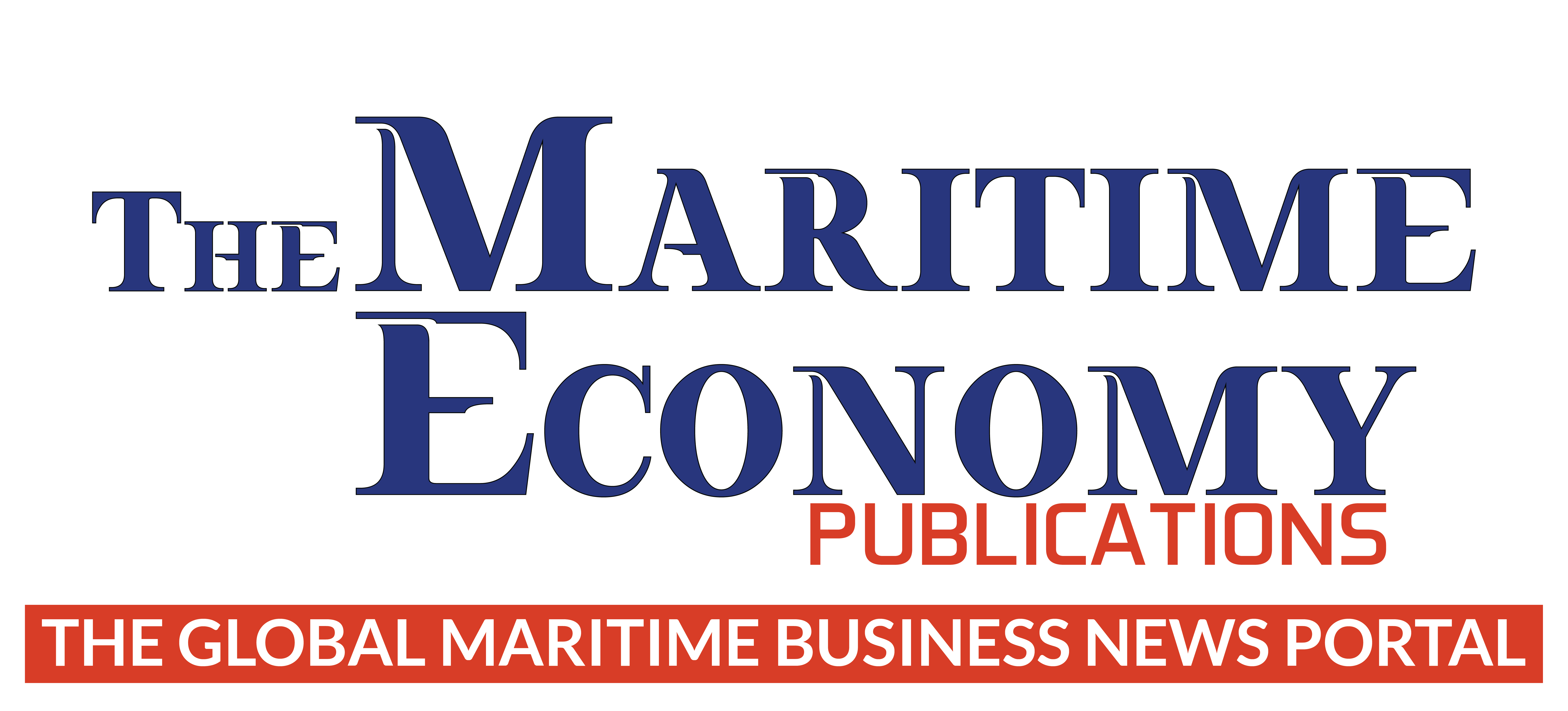Delivery of Bulk Carrier 'LOWLANDS FIDELITY'

Kawasaki Heavy Industries, Ltd. announced today that Nantong Zhongyuan Shipping Kawasaki Ship Engineering Co., Ltd. ( NACKS , Nantong, China), which is jointly operated with China Ocean Shipping Group Co., Ltd., will operate a 64- inch bulk carrier, LOWLANDS FIDELITY , for SAKAE SHIPPING SA. (Rolands Fidelity)” (our ship No. 8090 / NACKS No. 427 ) has been delivered.
Features:
1. It is a flat deck type with a forecastle and has five holds that can carry cargo such as grain, coal, ore. In addition, four 30 - ton deck cranes are installed on the centerline of the hull between each hatch cover , enabling cargo handling even in ports without cargo handling facilities.
2. Equipped with a fuel-saving electronically controlled diesel main engine, propellers with high propulsion efficiency, rudder valves with Kawasaki fins developed by Kawasaki, and semi-ducts with contra fins, which contribute to propulsion performance. We have achieved Phase 3 of the EEDI regulation * 1 ( 30 % reduction in CO2 emissions compared to the standard value ).
Main item:
| Length x Width x Depth | 199.90m  x 32.24m x 19.40m | ||||
| full draft | 13.50m _ | ||||
| sailing speed | about 13.8 knots | ||||
| Capacity | 25 people | ||||
| gross tonnage | 36,412 tons | ||||
| dead weight | 64,028 tons | ||||
| Cargo hold volume | 81,432㎥ | ||||
| main engine | 1 MAN B&W 6S50ME-C9.7-HPSCR diesel engine | ||||
| Ship Class/Registration | Nippon Kaiji Kyokai ( NK ), Panama | ||||
| Delivery date | June 14 , 2023 _ | ||||
* 1 EEDI ( Energy Efficiency Design Index ) regulation Regulations on the energy efficiency performance of new ships using the Energy Efficiency Design Index ( EEDI ), which is defined as the number of grams of CO2 emitted when carrying
one ton of cargo for one mile. An international regulation that enforces conformance to values. EEDI regulation values ​​will be strengthened in stages according to the construction contract date and delivery date. In the case of bulk carriers, Phase 2 will come into effect in 2013 , requiring contracted ships from 2020 onwards to reduce CO2 emissions by 20% from Phase 0 as the base value . Phase 3 requires contract ships from 2025 onwards to reduce CO 2 by 30% compared to Phase 0 .
